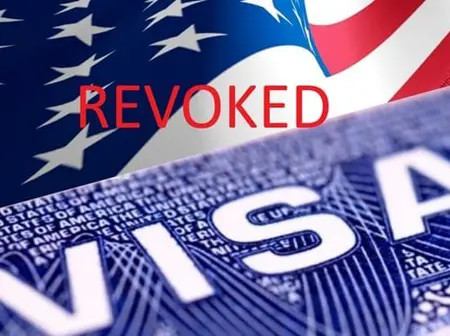Washington, D.C. — In a sweeping enforcement move, the United States government has revoked more than 6,000 student visas, citing violations of immigration law, criminal behavior, and prolonged overstays. The action, confirmed this week by officials from the Department of Homeland Security (DHS) and the State Department, is one of the largest of its kind in recent years and signals a tougher stance on visa compliance amid growing political pressure.
According to DHS officials, the revocations are primarily tied to three categories:
Overstaying Visa Duration: Thousands of students failed to depart the U.S. after their visa status expired, often continuing to reside or work illegally.
Criminal Activity or Legal Violations: A significant portion of cases involved students allegedly engaging in criminal activity, including fraud, identity theft, and in some cases, violent offenses.
Fake or Non-Compliant Institutions: A smaller subset of visa holders were found to be enrolled in institutions that did not meet the educational standards required for student visas, or that were later determined to be operating fraudulently.
A State Department spokesperson stated, “The United States welcomes international students, but those who abuse the terms of their visas or pose a threat to national security will face consequences, including revocation and removal.”
The move comes amid increased scrutiny of the Student and Exchange Visitor Program (SEVP), which tracks nonimmigrant students and their schools. An internal audit reportedly flagged thousands of irregularities earlier this year, prompting a coordinated investigation by Immigration and Customs Enforcement (ICE) and the U.S. Citizenship and Immigration Services (USCIS).
The revocations are already having ripple effects across academic institutions and student communities. Several universities expressed concern over the sudden removals and the lack of communication prior to the action.
“We understand the need for law enforcement, but we are deeply concerned about students being caught off guard without a chance to respond or appeal,” said one official of a major university. “This sends a chilling message to the international academic community.”
Student advocacy groups are also voicing alarm. The International Student Coalition released a statement calling the move “an indiscriminate crackdown that risks alienating future scholars and talent.”
This action follows months of political debate in Washington over tightening visa controls and enhancing national security. Some lawmakers have criticized perceived leniency in the student visa system, especially amid concerns about espionage, illegal work, and overstays.
In contrast, critics argue the crackdown could damage the U.S.’s reputation as a leading destination for higher education. “The United States is already losing ground to countries like Canada, the UK, and Australia,” said one immigration attorney. “Mass revocations like this only make the situation worse.”
Most of the affected students have either left the U.S. voluntarily or are undergoing deportation proceedings, according to ICE officials. Those who believe their visas were revoked in error may appeal through the appropriate legal channels, though success rates are typically low once a revocation has occurred.
Meanwhile, universities are being urged to double-check the visa compliance of their international students and to provide greater education on immigration rules.
The State Department has not ruled out further revocations, noting that investigations are still ongoing.

Leave a Reply